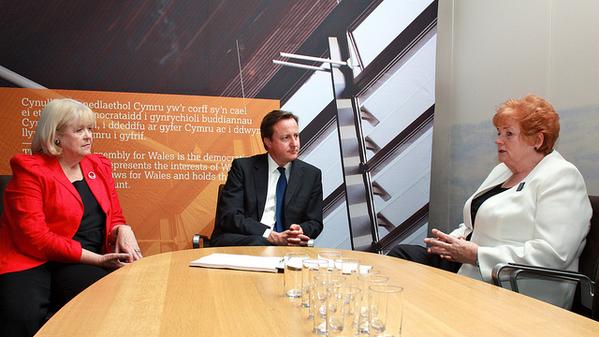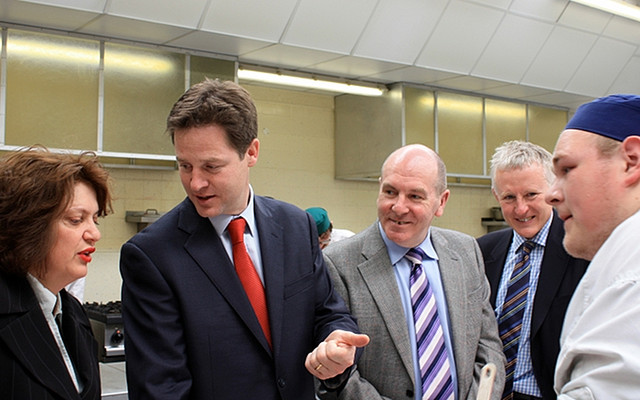20 things we learned about democracy in November 2014
Traditionally, November isn’t a particularly pleasant month, with autumn giving way to winter, and Christmas just too far away to provide any real solace. But did we learn anything about democracy that might cheer us up? Democratic Audit’s Sean Kippin does his best to do just that, bringing us factoids about white vans, immigration, Prime Ministers’ dress sense, and the next stage of Lembit Opik increasingly bizarre post-Parliamentary career.
1. Raging cats and dogs
According to YouGov’s new profiler, both cat and dog lovers tend to be to the right of centre politically. Dog fans, appropriately, think that the country is “going to the dogs”, though this doesn’t appear to be considered a good thing. Find out more here.
2. Jesus and Mary claim
Again according to YouGov, most people have a view about what Jesus would do when it came to politics, but wouldn’t do it themselves. Find out more here.
3. Vanarchy in the UK
Research by DA’s Carl Cullinane shows that the Highlands of Scotland Local Authority has the highest concentration of light goods vehicle registration in the whole of the UK, meaning that the average White Van Man might not look too much like Rochester’s now infamous ‘White Van’ Dan Mare. Find out more here.
4. Who Governs (sartorial choices)?
Former Prime Minister Ted Heath allegedly turned up to the fancy party of a Parliamentary colleague wearing a Miami Dolphins Superbowl shirt, much to the surprise of the guests. Find out more here.
5. Young, gifted, and parachuted
The UK political class is becoming younger and more diverse, but also more professionalised, according to research carried out by Democratic Audit Trustee Rosie Campbell and colleagues Chrysa Lamprinakou and Jennifer vanHeerde-Hudson. Find out more here.
6. Making pains for Nigel
7% of UKIP voters are dissatisfied with Nigel Farage,according to a report in the New Statesman. Find out more here.
7. Divided and conquered
UK voters see divided political parties as less able to make sensible or coherent policies, according to research by Zach Greene. Find out more here.
8. Lawyer cake
39% of European Parliament staff have a background in law. Find out more here.
9. Sister act
Women legislators create higher levels of political engagement amongst women constituents, according to Kim L. Fridkin and Patrick J. Kenney. Find out more here.
10. Subtext erroneous homesick blues
Politicians can be forced to resign from relatively senior political posts if they tweet a photograph which too much subtext. Find out more here.
11.When God pulls up a drawbridge, he opens a window
UKIP’s anti-immigration policies could actually increase immigration, according to Alun Wyburn-Powell on his regular blog. Find out more here.
12. Pal-itics
Labour voters are less likely to be friends with someone if they found out they voted Conservative. Find out more here.
13. Gender imbalance
The first Cabinet of new Scottish First Minister Nicola Sturgeon is 50% female, compared to only 26% of SNP MSPs. Find out more here.
14. Behavioural Silence
Voters act very differently if they believe that all candidates have a chance of winning. Or at least they say that they would. Find out more here.
15. Yawning gap
The UK has one of the biggest participation gaps in the OECD between young and old. Find out more here.
16. Political outsiders
Most UK voters want to see immigration reduced, but they still trust immigrants more than they trust politicians (such as Nick Clegg). Find out more here.
17. Bus-ted
The Secretary of State for Transport is either very boring, or tells transparent fibs. Find out more here.
18. You can’t talk about (anything other than) immigration
The UK is far more preoccupied with immigration than Germany is. Find our more here.
19. Under-representation nation
28% of working class voters think no political party represents their views – higher than Labour and the Tories, and the same as UKIP. Find out more here.
20. Sex sandal
A former Liberal Democrat leadership candidate helped to run the campaign of an unusual non-Lib Dem candidate at the Rochester and Strood by-election. Find out more here.
—
Note: this post represents the views of the authors and not those of Democratic Audit or the LSE. Please read our comments policy before posting.
—
 Sean Kippin is Managing Editor of Democratic Audit, and is responsible for DA’s website, blog and wider output. He has a BA in Politics from the University of Northumbria and an MSc in Political Theory from the LSE. He has worked for MPs Nick Brown and Alex Cunningham, as well as the Smith Institute think tank. He has been at Democratic Audit since June 2013, and can be found on twitter at @se_kip.
Sean Kippin is Managing Editor of Democratic Audit, and is responsible for DA’s website, blog and wider output. He has a BA in Politics from the University of Northumbria and an MSc in Political Theory from the LSE. He has worked for MPs Nick Brown and Alex Cunningham, as well as the Smith Institute think tank. He has been at Democratic Audit since June 2013, and can be found on twitter at @se_kip.

























 Democratic Audit's core funding is provided by the Joseph Rowntree Charitable Trust. Additional funding is provided by the London School of Economics.
Democratic Audit's core funding is provided by the Joseph Rowntree Charitable Trust. Additional funding is provided by the London School of Economics.
20 things we learned about democracy in November 2014, by the inimitable Sean Kippin https://t.co/xVcZtGgh4D
20 things we learned about democracy in November 2014 by @se_kip https://t.co/UnUz77e9SL
via @richard3berry 20 things we learned about democracy this month from @DemocraticAudit https://t.co/EJT7XLGHw0
Ted Heath and *that* top (plus 19 other things we learned about politics this month): https://t.co/DlRr6apeRT
20 things we learned about democracy in November 2014 https://t.co/D4WOdMhP8V
20 things we learned about democracy this month from @DemocraticAudit https://t.co/GkToKZsUy7
20 things we learned about democracy in November 2014 https://t.co/QYULIcE0Uf